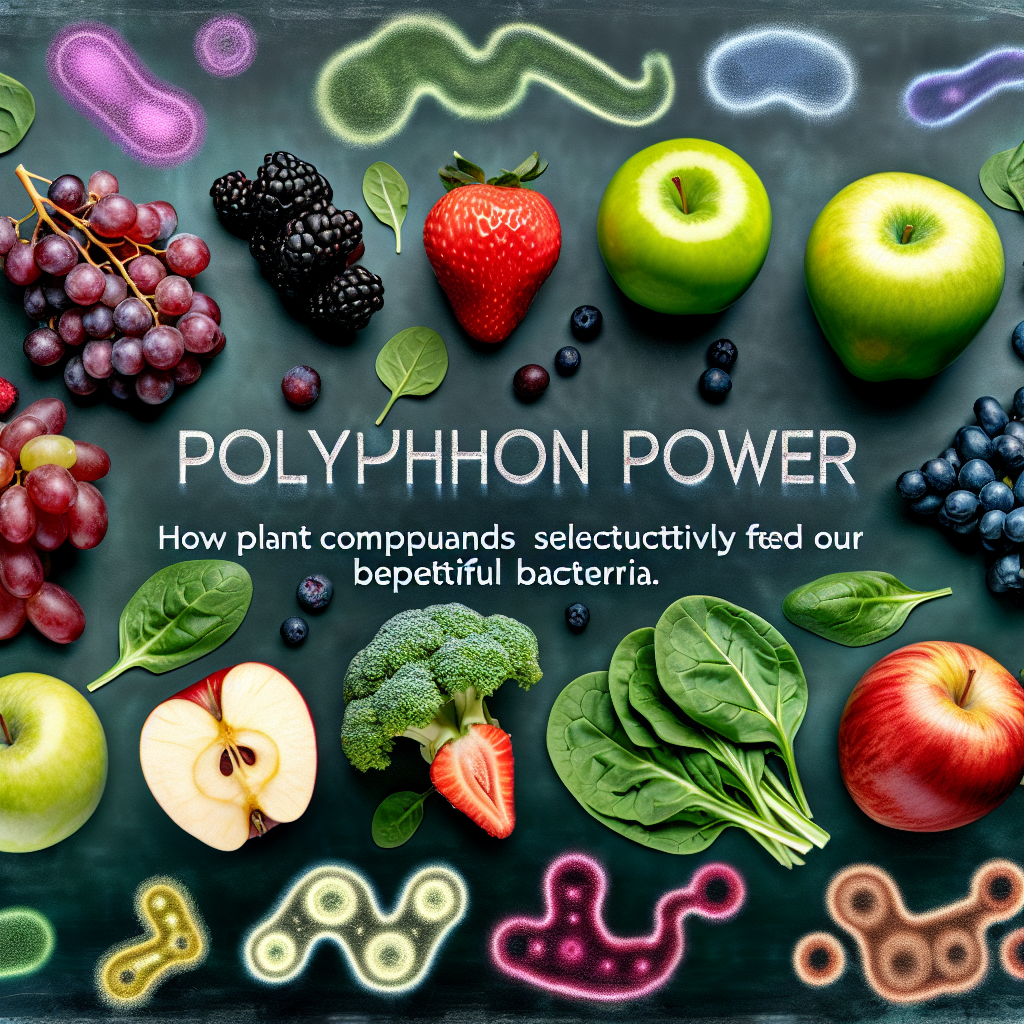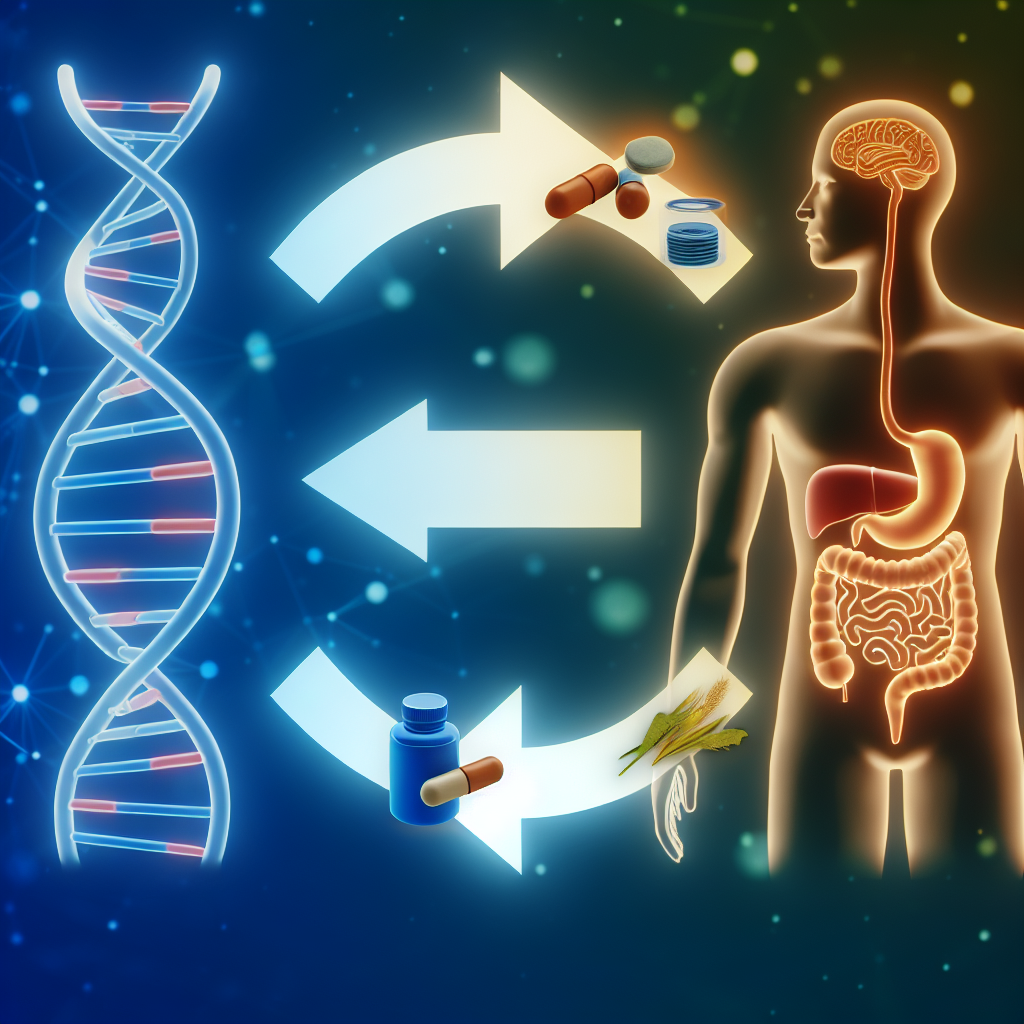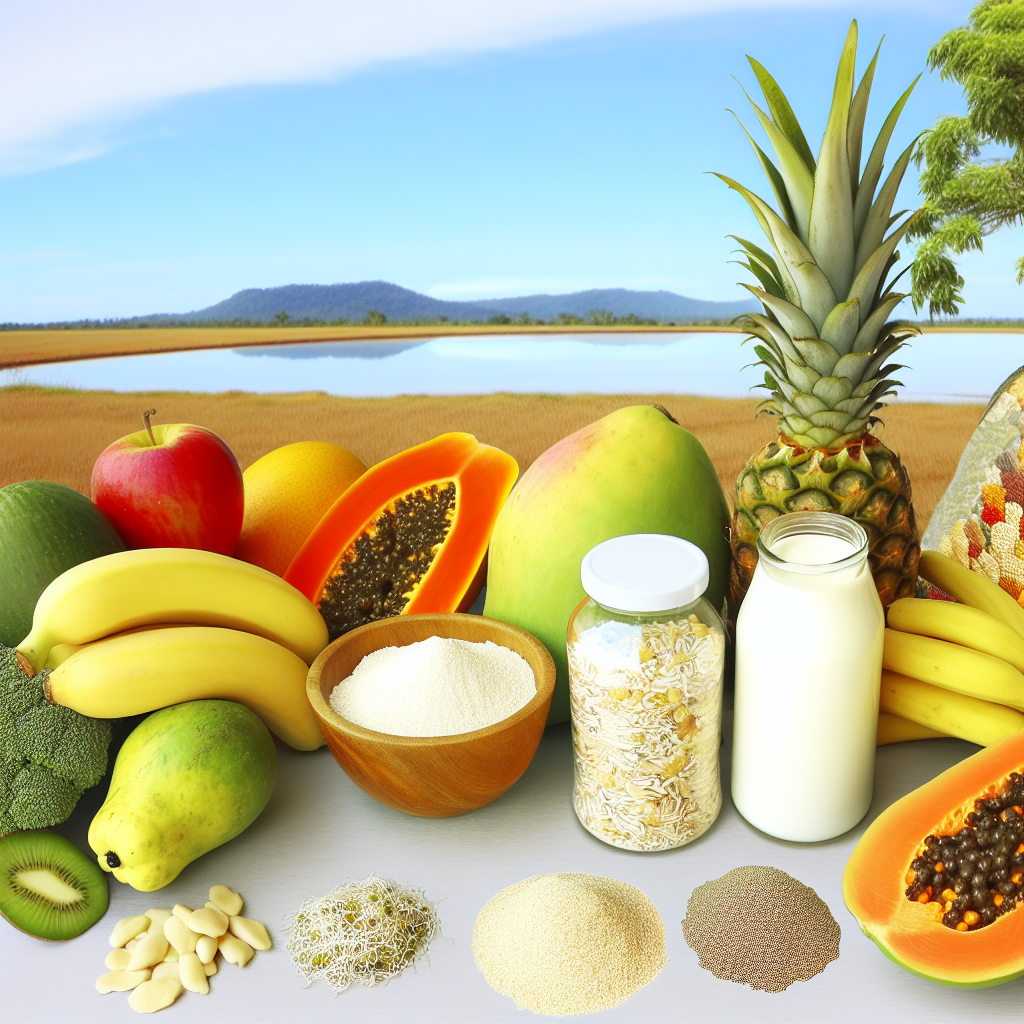Polyphenol Power: How Plant Compounds Selectively Feed Beneficial Bacteria
Introduction: Unlocking the Power of Polyphenols for Gut Health
Gut health is foundational to overall well-being, influencing digestion, immune function, and even mental health. A growing body of research suggests that polyphenols—plant-based compounds found in fruits, vegetables, tea, coffee, and dark chocolate—play a crucial role in fostering a balanced gut microbiome. Unlike general fiber, which feeds a broad spectrum of gut bacteria, polyphenols have been shown to selectively nourish beneficial bacterial strains, giving them a unique role in digestive health.
Polyphenols act as prebiotics—non-digestible compounds that serve as food for beneficial bacteria. Once ingested, polyphenols pass through the digestive tract largely unchanged until they reach the colon, where gut microbes metabolize them into bioactive compounds. These byproducts then influence bacterial populations, inhibiting harmful strains while promoting the growth of beneficial ones like Lactobacillus and Bifidobacterium. As a result, polyphenols help maintain microbial balance, support gut barrier integrity, and reduce inflammation.
Studies indicate that dietary polyphenols contribute to gut health in various ways. They enhance the production of short-chain fatty acids (SCFAs), which fuel intestinal cells and regulate metabolism. They also exhibit antimicrobial properties, selectively suppressing pathogenic bacteria while allowing beneficial microbes to thrive. Furthermore, polyphenols reduce oxidative stress and inflammation in the gut lining, creating an environment conducive to beneficial bacterial colonization.
Common sources of polyphenols include berries, apples, red wine, green tea, cocoa, and certain spices such as turmeric and cinnamon. While increasing dietary polyphenols through whole foods is ideal, polyphenol-rich supplements can also provide concentrated benefits. Incorporating these plant-based compounds into daily meals can support gut microbiome diversity, reduce dysbiosis, and promote overall digestive wellness.
As interest in gut health continues to rise, understanding how polyphenols interact with the microbiome is essential. In this article, we explore scientific findings on how polyphenols selectively feed beneficial bacteria, supporting optimal digestive health.
How Polyphenols Shape a Healthy Gut Microbiome
Scientific Findings on Polyphenols and Gut Health
Emerging research highlights the powerful role of polyphenols in shaping microbial composition within the gut. A 2022 review published in Nutrients found that polyphenols from sources such as green tea, berries, and cocoa enhance the growth of probiotic bacteria while inhibiting harmful species like Clostridium perfringens and Escherichia coli. These plant-based compounds work by modifying gut microbial activity, increasing the abundance of beneficial bacteria such as Akkermansia muciniphila, which strengthens the intestinal barrier and improves metabolic health.
A study in Frontiers in Microbiology investigated the effects of grape polyphenols on microbiota composition. Researchers found that grape-derived polyphenols stimulated the growth of Bifidobacterium and Lactobacillus while reducing harmful gut microbes. This selective feeding pattern supports microbial diversity, which is essential for robust gut health.
Boosting Short-Chain Fatty Acids for Gut Integrity
Additionally, polyphenols contribute to gut health by promoting the production of short-chain fatty acids (SCFAs), such as butyrate. A 2020 study published in the Journal of Agricultural and Food Chemistry found that polyphenols from tea and berries increased the abundance of bacteria responsible for SCFA production. SCFAs serve as an energy source for colon cells and help maintain a healthy gut lining.
Polyphenols as Natural Antimicrobials
Polyphenols also exhibit antimicrobial properties, selectively targeting pathogenic microbes. Research in Molecular Nutrition & Food Research suggests that cranberry polyphenols inhibit the adhesion of harmful bacteria such as Helicobacter pylori, reducing gastrointestinal inflammation and improving gut balance.
Overall, these studies confirm that polyphenols act as natural prebiotics, supporting gut microbiota diversity while suppressing harmful microorganisms.
Conclusion: Harness the Power of Polyphenols for Optimal Gut Health
The complex interplay between polyphenols and the gut microbiome highlights the importance of a diet rich in plant-based foods. These compounds not only nourish beneficial bacteria but also contribute to metabolic health, inflammation control, and gut barrier function. By selectively feeding probiotic strains such as Bifidobacterium and Lactobacillus while inhibiting pathogens, polyphenols support a balanced and resilient digestive system.
Incorporating polyphenol-rich foods like berries, green tea, dark chocolate, and spices into your diet can provide lasting benefits for gut health. As research advances, polyphenols may become more recognized as a natural strategy for maintaining microbial balance and preventing gastrointestinal disorders. Embracing a polyphenol-rich diet can be a simple yet effective way to harness the power of plant compounds for improved digestion and overall well-being.
Concise Summary:
Polyphenols, plant-based compounds found in fruits, vegetables, and other foods, play a crucial role in supporting a healthy gut microbiome. Emerging research shows that polyphenols selectively feed beneficial bacteria like Lactobacillus and Bifidobacterium, while inhibiting harmful microbes. Polyphenols also boost production of short-chain fatty acids, exhibit antimicrobial properties, and reduce inflammation in the gut, all of which contribute to optimal digestive health. Incorporating polyphenol-rich foods and supplements can be an effective natural strategy for maintaining a balanced and resilient gut microbiome.

Dominic E. is a passionate filmmaker navigating the exciting intersection of art and science. By day, he delves into the complexities of the human body as a full-time medical writer, meticulously translating intricate medical concepts into accessible and engaging narratives. By night, he explores the boundless realm of cinematic storytelling, crafting narratives that evoke emotion and challenge perspectives.
Film Student and Full-time Medical Writer for ContentVendor.com



